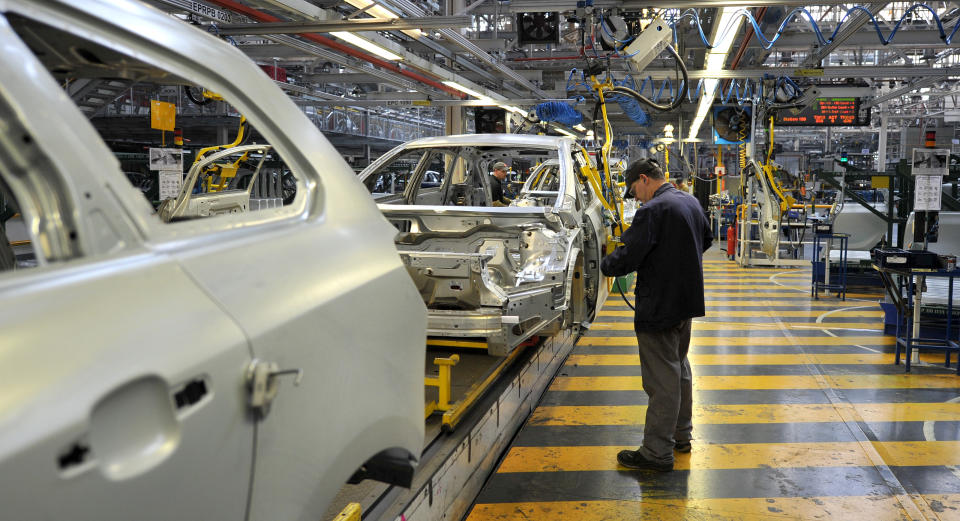UK factories suffer longest downturn since the financial crisis

UK factory production shrank for a fifth month in a row in September, according to new figures that suggest the longest manufacturing downturn since the financial crisis.
A widely watched purchasing managers’ index (PMI) on manufacturing performance across Britain showed a reading of 48.3 for September.
The figure was up from 47.4 in August, above expectations and with analysts highlighting increased “one-off” stockpiling for Brexit.
But output still shrank, with figures below 50 on the index, by IHS Markit and the Chartered Institute of Procurement & Supply (CIPS), indicating a decline in trading conditions. Readings above 50 indicate growth.
A global slowdown, trade tensions and uncertainty over Brexit have been widely blamed for the woes of manufacturing firms in Britain and Europe.
The last time British factories recorded five months of decline was in mid-2009 at the height of the financial crisis.
It comes after similarly bleak figures were released on Tuesday for the whole bloc of eurozone countries, with manufacturing contracting at its steepest rate in seven years in September. The headline index for the eurozone was 45.7, its lowest since October 2012.
Seamus Nevin, chief economist at manufacturing body Make UK, said: “Were it not for the emergency stockpiling activities that took place ahead of our original EU exit date last March, the UK manufacturing sector would already be in recession.”
He said job losses were now “widespread”, saying there were around 126,000 fewer people working in the sector than in June 2016.
Rob Dobson, director at IHS Markit, said: “The UK manufacturing downturn continued in September, adding to signs that the sector may be sliding into recession.
“Output, new orders and employment all fell further as rising political, trade and economic uncertainties exacerbated concerns about Brexit.
“Some manufacturers noted increased inventory building activity in preparation for the forthcoming exit date, but the impact of such Brexit-related stock building was dwarfed by weakening demand for other customers, due in part to clients routing supply chains away from the UK.
“The rate of job losses accelerated to a six-and-a-half-year high, highlighting how manufacturers are increasingly seeking to cut costs.”
READ MORE: Pound hovers as markets await Johnson’s latest Brexit plans
Duncan Brock, group director at the CIPS, said companies “shed jobs at a rate not seen since 2013 as redundancy packages were prepared and new staffing plans abandoned.”
He added: “Brexit combined with a slowdown in the global economy, rising trade tensions and potential oil supply difficulties in the Middle East, means we’re likely to see a chilling end to the last quarter as Halloween approaches.”
David Cheetham, chief market analyst at XTB, said the slight improvement on August’s figures was “misleading,” reflecting increased Brexit stockpiling.
He added: “Several key indicators such as new orders, output and employment all fell further, and any improvement in the headline reading can be explained away as a one-off Brexit related quirk rather than any real improvement in the sector.”

 Yahoo Finance
Yahoo Finance 